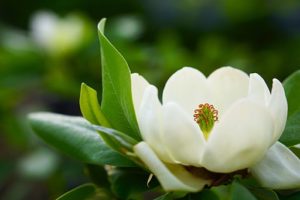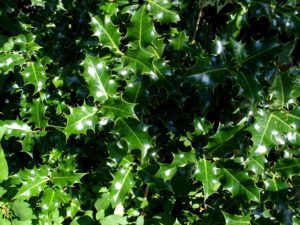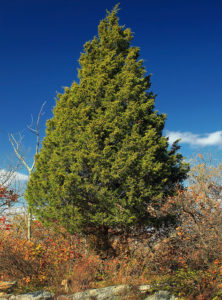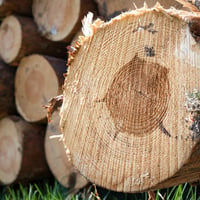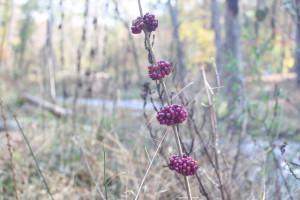Many adults have fond memories of tree swings, and today’s homeowners want to pass on these...
Arborist’s Advice on Living Privacy Screens
There are many reasons our customers want a little more privacy. Whether you want to block a view of an unsightly object, the eyesore in the neighbor’s yard, the street, or you just don’t want someone watching you grill and relax with family and friends. But privacy doesn’t have to mean a boring fence! Those can make your yard seem smaller and confined. We suggest planting privacy trees.
Not all trees are well-suited for privacy. As you can imagine you don’t get much privacy from a maple tree when all the leaves are gone in the winter. We would like to share our favorite privacy creating trees.
-
Our greatest tip from the arborist: SAY NO TO THE MONOCULTURE!
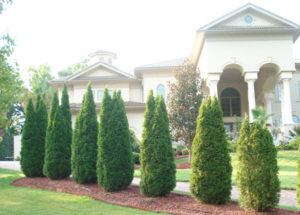
Arborvitae planted en masse can lead to some serious issues when one becomes diseased.
A monoculture is when someone plants a single variety of plant in the same place. You’ve seen it before, a row of arborvitae. Not only does this look boring, but trees are susceptible to disease and if one gets sick, the others will likely suffer from it too. Creating a privacy screen with different species of trees will give you year long beauty and a dense screen of privacy.
-
Go Native as much as possible.
Planting large trees on your property for the immediate benefit of privacy can get expensive. Using non-native trees will only cost you more when they need to be replaced.
- Southern Magnolia, magnolia grandifolia. Saying the Southern Magnolia is a Missouri native is a bit of a stretch. It has been found in the southern regions of the state. However, it can do very well in St. Louis as long as it has a protected site, a place where some wind could be blocked (next to the house or surrounded on a couple sides by other trees). But the beautiful, fragrant flowers make this tree worth the fuss!
- Holly, ilex opaca. Another broadleaf evergreen, this Holly is native to Missouri. Birds will enjoy their bright red fruits in the winter.
- Juniper, juniperus virginiana. This native tree will do very well in the St. Louis area.
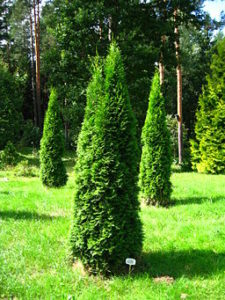
If you are wanting to add arborvitae to your planting, consider using it sparingly to prevent a large die-off.
You may be wondering about one tree we see in almost every privacy screen, the American Arborivitae, thuja occidentalis. These trees are fast growing evergreens and thats why they have popped up in nearly every privacy screen we see around St. Louis. But these fast growing trees are also quite susceptible to pests and disease. We advise our customers to plant this tree with caution and never more than a few.
-
Placement says it all
Instead of placing all the trees in a straight line along your property line, create a staggered layered effect. This gives the planting a more natural appearance and denser screen. Planting a straight row of trees also may tell your neighbor, “Hey! I’m sick of looking at you and your yard”. Planting an intentional landscaped bed, adding some lower perennial bushes tells them you are just making your space more beautiful.

